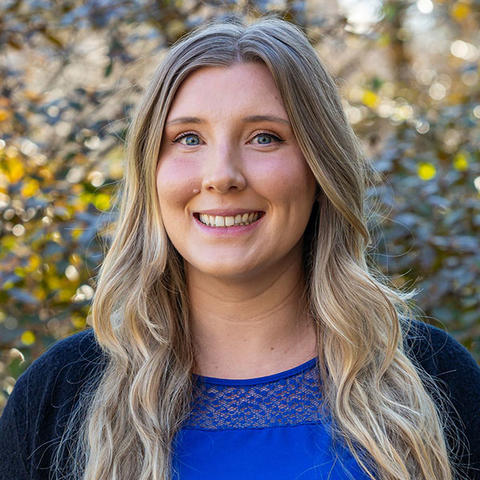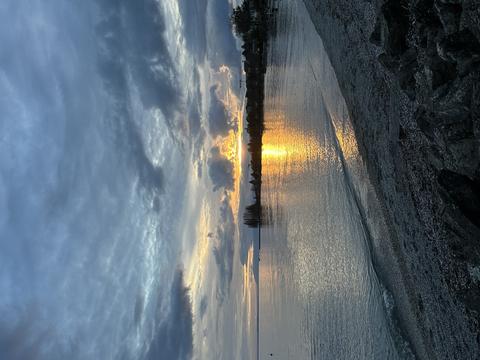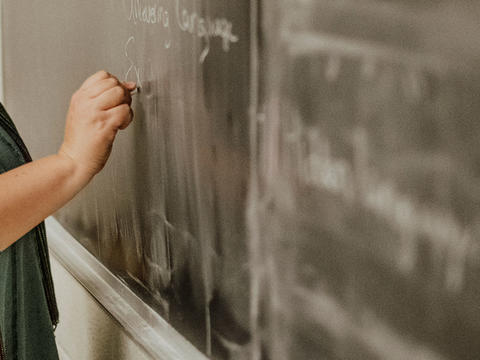Fulbright Experience in Switzerland by Bayan Mostaghim ‘23

Bayan Mostaghim ‘23 is currently on a Fulbright Study/Research grant in Switzerland, where he is conducting nanobiotechnology research at the École Polytechnique Fédérale de Lausanne (EPFL).
How’s your Fulbright experience been?
My Fulbright experience so far has been wonderful. I originally applied for a Fulbright because I did not get the chance to study abroad and I had always wanted to live in another country for an extended period of time in order to meet new people and explore a new culture. While in Switzerland, I have learned a lot about the unique mix of French and German culture that comes together to form Swiss culture, and have also had the opportunity to visit many Swiss cities, small towns with historical and cultural significance, and beautiful lakes and mountains. Interestingly, the perspective of living outside the US has also helped me understand American culture in new ways as well. I’ve also gotten the chance to eat lots of good cheese and chocolate!
Cultural exchange is a core component of the Fulbright program. In what ways have you connected with the local Swiss community, and what’s that experience been like?
Being a member of the Baha'i Faith, I have been able to connect with the local Baha'is not just around Lausanne (where I live), but also in Geneva and Bern. As the Baha'i Faith does not have any clergy or a gathering place equivalent to churches and mosques, Baha'is regularly gather at each others' homes to share prayers and reflections as well as to attend to community administrative tasks. This has allowed me to meet many Swiss Baha'is in more familial and personal spaces, which has given me the opportunity to witness aspects of Swiss life that I otherwise would not have. As a member of the Baha'i community in Lausanne, I've also learned a lot by seeing and experiencing many familiar Baha'i practices and activities through the unique lens of both Swiss culture and the diverse expat population present here. Even more interesting has been seeing how these aspects of Baha'i life and practice change (and/or do not change) between the French-speaking and German-speaking regions of Switzerland.
You shared with us last Spring that your research project “will be working on a nano biotechnology project to develop better blood glucose sensors that would not require implanted sensors or finger pricks.” How’s that project going?
As many know, research never goes according to plan, and my research experience here at EPFL has been no exception. From negative results to project redesigns and going down rabbit holes, I could have never predicted my scientific journey during my Fulbright. Despite this, I feel that I have gained so much from my time here. I have learned so much about research project design, acquired knowledge of new techniques, and have had the privilege to work alongside some amazing people who have taught me much about what it means to be a scientist. Indeed, I feel much more prepared to tackle any research projects that I plan to conduct in the future. I've also been able to experience the emphasis on work-life balance that seems to be ever-present here in Europe, and I plan to take these insights with me so that I can tackle any research in a more healthy and balanced way. In the past two weeks I have been excited to see some promising results after many months of hard work! Overall, even from a purely research perspective, I believe my Fulbright experience has been invaluable.
What advice do you have for those who are thinking about applying to Fulbright?
I would definitely encourage anyone who is considering applying to apply. Fulbright is a very unique experience that will be valuable to you in so many more ways than you can expect. The Fulbright application process itself was also a huge growth experience — even if I had not received the scholarship, I believe that the experience applying was valuable for my MD-PhD applications that followed almost a year later. When applying, I would encourage any prospective applicants to start early and make sure your application is well-polished. Most importantly, don’t be afraid to make use of the resources available to you at Haverford! Speak with professors who may have connections abroad as well as alumni who have either applied for or received a Fulbright — and of course, don’t hesitate to speak with Jason, who provided me with incredible support and advice during the application process. Good luck!









